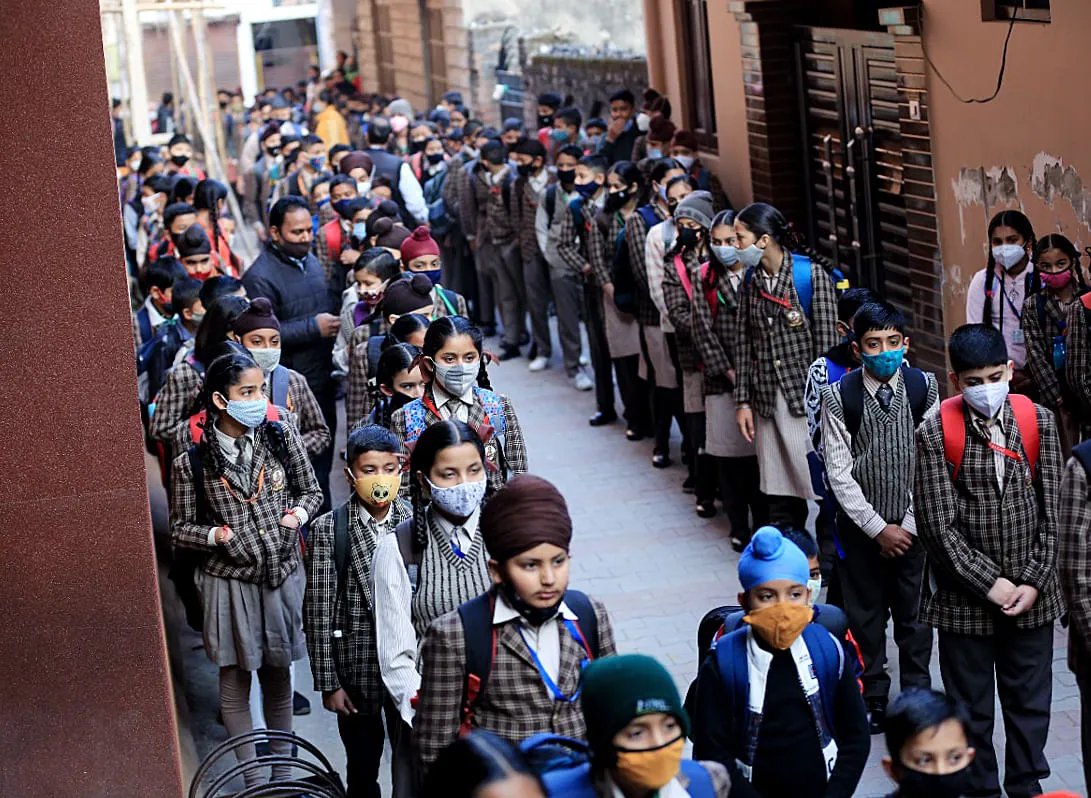Srinagar: In a landmark decision aimed at safeguarding the well being and mental health of students, the Department of School Education Kashmir (DSEK) today issued a circular imposing a ‘blanket ban on corporal punishment and other forms of child abuse’ in all educational institutions within its jurisdiction.
The circular follows strong advocacy from mental health professionals, highlighting the distressing cases and reports revealing the detrimental impact of corporal punishment on students’ mental health and overall development.
The circular cites a report from the Institute of Mental Health and Neurosciences-Kashmir (IMHANS-K), which raised serious concerns about the adverse effects of corporal punishment on the mental health of school-going children.
Such punitive measures not only hinder the learning process but also create an atmosphere of fear and hostility within the educational institutions, the circular reads.
The DSEK has impressed upon school heads, teaching officials, and educational authorities, both from government and private institutions, to strictly adhere to the ban on corporal punishment and other forms of child abuse.
It has warned that any deviation from these instructions will be dealt with severely, with strict punitive measures taken against the violators.
On June 28 this year, the IMHANS had written a letter to DSEK seeking urgent action for banning corporal punishment in schools.
The letter had expressed grave concern over findings at IMHANS Child Psychiatry Center about the punishments and ill treatment meted out to students in schools.
It had found that 106 children had been brought for psychiatric interventions between 2020 and 2022 following corporal punishment. The letter had underscored how such acts have “severe, long lasting and detrimental effects on children’s mental and emotional wellbeing often resulting in fear, trauma, anxiety and decreased self esteem”.
The Child Psychiatry Center is run at SMHS Hospital with support from UNICEF, the UN agency mandated with the protection and welfare of children.
Dr Zaid Ahmed Wani, who heads the Child Psychiatry Center, said that it was important to safeguard children from lifelong scars and effects of corporal punishment.
“We have offered to train teachers across Kashmir’s schools in better and humane disciplinary actions,” he said.
The DSE also emphasises the need to adopt alternative and preventive measures, focusing on positive engagement and guidance for students rather than resorting to punitive actions.
The circular’s scope extends to all CEOs, Cluster Heads, Zonal Education Officers, Headmasters of High Schools, and Headmasters of Middle and Primary Schools, both from government and private institutions. Coordinators of recognised private tuition centers are also bound by the ban on corporal punishment and child abuse, with strict compliance expected in their respective domains.
The Right to Education (RTE) Act, 2009 explicitly bans corporal punishment and mental harassment of children.
In addition, the Section 75 of the Juvenile Justice Act outlines stringent punishment for cruelty to a child including rigorous imprisonment and hefty fines.
The circular makes references to these legal aspects.
It states that the National Commission for Protection of Child Rights (NCPCR) Guidelines for Eliminating Corporal Punishment states that physical harm, discomfort, or distress to children, such as hitting, kicking, smacking, forced ingestion, or detention in closed spaces count as corporal punishment.






